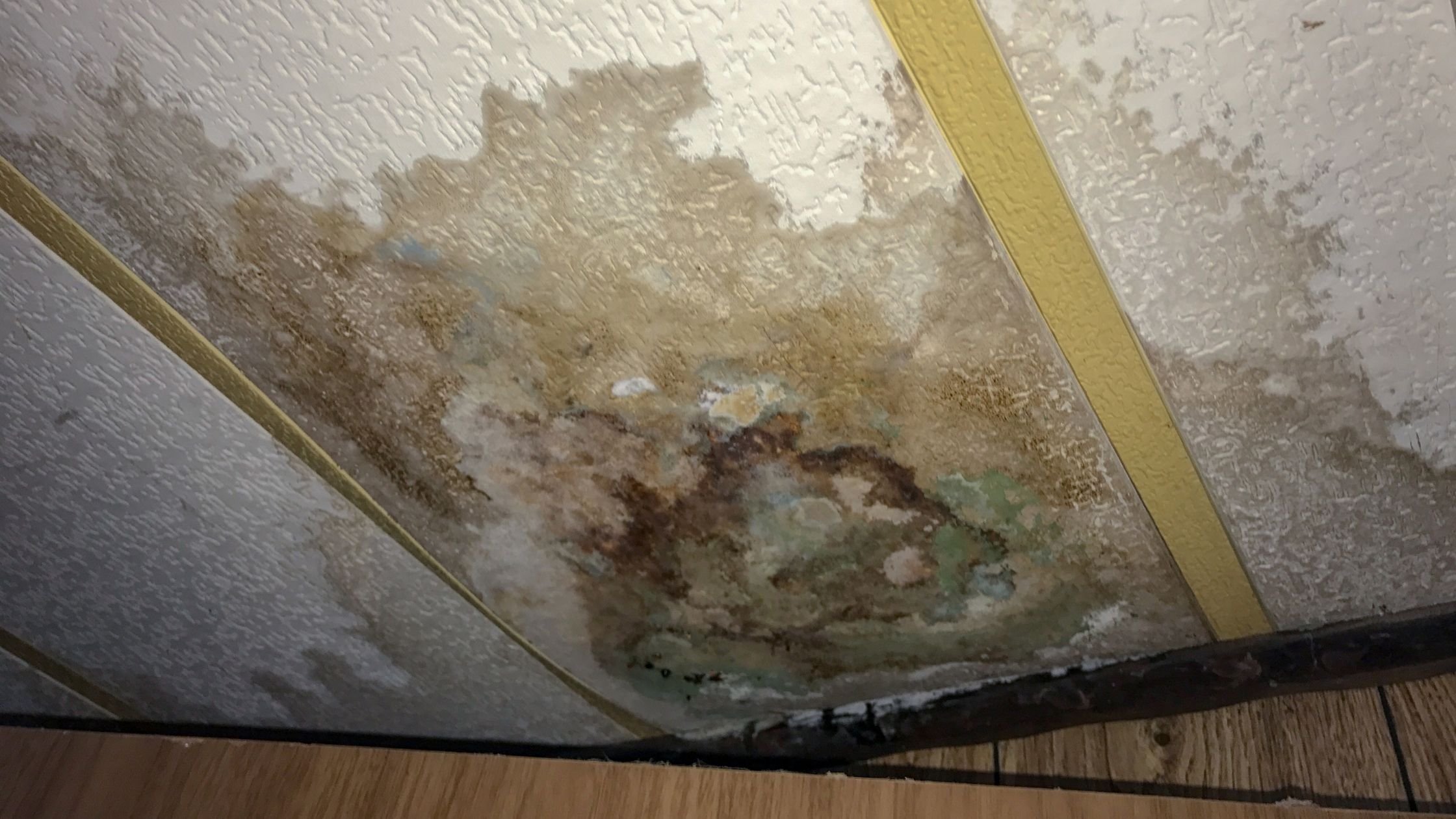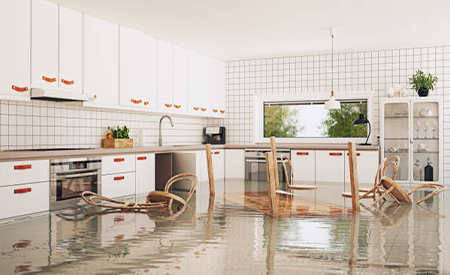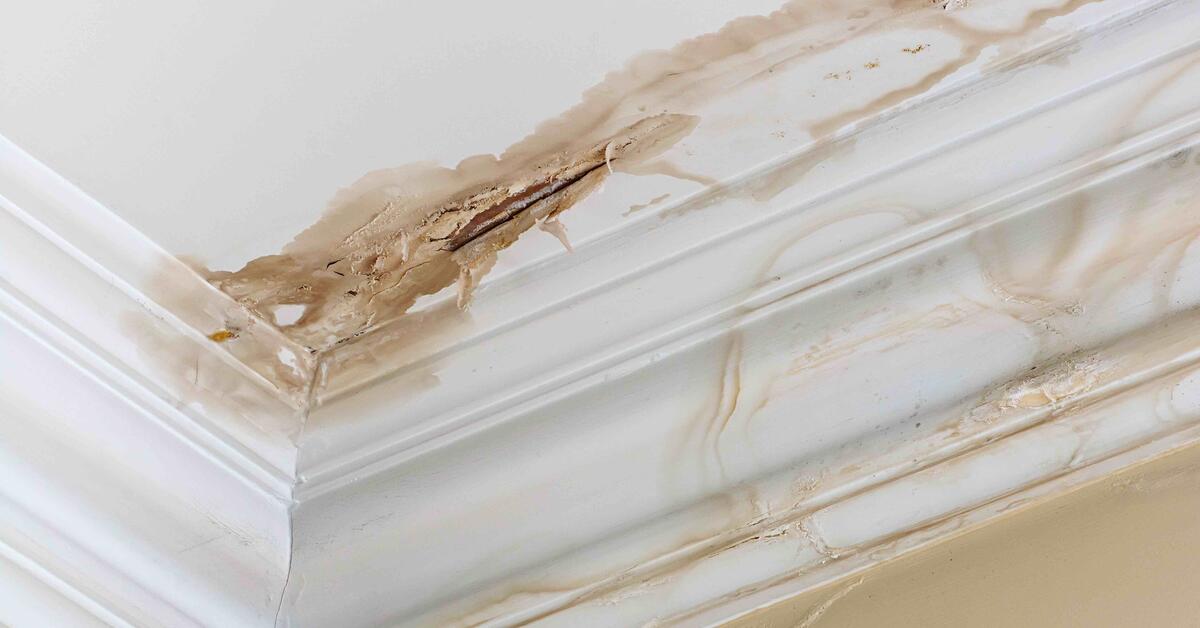24/7 Emergency Water Damage Restoration Services for Urgent Needs
24/7 Emergency Water Damage Restoration Services for Urgent Needs
Blog Article
The Refine of Water Damages Cleanup: Guaranteeing Your Home Is Recovered Successfully
Water damages can be an overwhelming challenge for house owners, demanding a organized and thorough cleaning procedure to restore safety and functionality. A comprehensive analysis is essential to recognize the degree of the damage and figure out the proper removal actions. Following this, effective water extraction strategies play a critical function in reducing additional damage. The subtleties of drying, sanitizing, and ultimate repair are similarly necessary and usually ignored. Comprehending these stages can make a substantial difference in the result of your home's restoration, triggering a closer appearance at what each step requires.
Examining the Damage
Upon finding water damages, the primary step is to extensively evaluate the level of the effect. This first assessment is critical, as it helps figure out the necessary steps for effective clean-up and reconstruction. Begin by examining the impacted locations, consisting of wall surfaces, ceilings, floors, and personal possessions, to determine the resource of the water breach, whether from flooding, leaks, or condensation.
Documenting the damage is important for both insurance coverage claims and preparing repair initiatives - damage restoration services. Use photographs and composed notes to record the severity of the damages, keeping in mind any kind of damaged structural elements and materials. Pay unique focus to areas that might not be promptly visible, such as behind walls and under carpets, as hidden moisture can result in more issues, consisting of mold development
In addition, examine the timeline of the water direct exposure. The longer the materials stay wet, the better the capacity for damage. Understanding the period of direct exposure will notify the seriousness of removal initiatives. Eventually, an extensive analysis prepares for a successful water damage clean-up procedure, making sure that all impacted areas are dealt with properly and extensively.
Water Extraction Techniques

Professionals normally utilize submersible pumps for larger volumes of water, which can rapidly relieve flooding in cellars or various other impacted areas. For smaller quantities, wet/dry vacuums are often used to remove recurring wetness from rugs and tough surfaces. Additionally, using portable extractors permits for targeted elimination in confined rooms or locations with delicate materials.
In circumstances of infected water, such as sewage or floodwater, advanced removal methods may involve the usage of biohazard tools to make certain safety and security and conformity with health guidelines. High-powered removal tools are critical in decreasing water retention in structural products, which can lead to mold development and architectural degeneration if not addressed without delay.
Eventually, the efficiency of water extraction techniques plays a critical function in the general success of the water damage clean-up process, preparing for succeeding repair efforts.
Drying and Dehumidification
As soon as standing water has been effectively extracted, the following essential stage in the water damage cleaning procedure is drying out and dehumidification. This action is important to prevent further damage and mold development, which can happen within 24 to 48 hours in moist settings.
To attain effective drying, customized equipment such as industrial-grade air moving companies and dehumidifiers is employed. Air moving companies circulate air throughout damp surfaces, boosting dissipation rates, while dehumidifiers lower humidity degrees in the air, advertising a conducive atmosphere for drying out. The mix of these tools guarantees that moisture is attracted out from floorings, home furnishings, and walls, enabling them to completely dry extensively.
It is crucial to keep track of the drying out process very closely. Specialists often utilize moisture meters to analyze the dampness material in various products, guaranteeing that all impacted areas get to acceptable dryness levels. This thorough approach aids to protect against covert moisture pockets that could result in structural damages or unhealthy mold and mildew growth.

Cleaning and Sanitizing
After the drying out and dehumidification stage is total, the next essential action in water damage cleaning is cleaning up and sterilizing the impacted areas. This procedure is critical to avoid the development of mold, germs, and other pathogens that grow in moist environments.
The cleansing phase usually involves removing any debris, dirt, and contaminants from surfaces using specialized cleaning representatives. For hard surface areas, a combination of soap and water or commercial cleaning products Full Article is frequently utilized. Soft materials, such as furniture and carpets, might require more comprehensive cleansing approaches, consisting of vapor cleansing or deep removal strategies, to make certain complete hygiene.

Sterilizing complies with cleaning, utilizing EPA-approved disinfectants to eliminate damaging bacteria. This step is crucial, specifically in areas that may have come right into call with floodwaters or sewage, as these sources can position serious health risks.
Additionally, it is vital to resolve any type of remaining odors, which may require making use of odor neutralizers or advanced strategies like ozone treatment. Correct cleaning and sanitizing not just restore the safety and security and hygiene of your home however also lay the foundation for successful restoration and fixings in subsequent phases of the water damage cleaning procedure.
Restoration and Fixings

As soon as the evaluation is full, reconstruction initiatives can begin. Furthermore, floor covering might require comparable attention, depending on the degree of water exposure.
It is crucial to involve seasoned remediation experts during this procedure, as they have the knowledge to take care of complex repair work properly. Additionally, they can help alleviate potential future issues, such as mold and mildew growth or structural instability, hence guaranteeing a secure and habitable living setting. Inevitably, effective remediation and repair services recover the home's integrity and improve its general worth.
Verdict
To conclude, the process of water damages cleaning is important for recovering a home to its pre-damage condition. Each phase, from evaluating the damage to carrying out efficient water removal methods, adhered to by comprehensive drying, sterilizing, and required repair services, plays an essential role in guaranteeing security and compliance with building standards. Efficient execution of these actions not just minimizes prompt damages however also improves the long-term integrity and value additional info of the property.
Water damage can be a challenging obstacle for house owners, requiring a precise and structured cleanup procedure to bring back safety and capability. Inevitably, a thorough analysis lays the groundwork for an effective water damages clean-up procedure, making sure that all influenced locations are addressed properly and completely.
Effective water extraction methods are crucial in minimizing damage and stopping further complications complying with a water invasion emergency clean up occasion.In verdict, the process of water damage clean-up is important for recovering a home to its pre-damage problem. Each phase, from evaluating the damage to executing efficient water extraction strategies, adhered to by comprehensive drying, sanitizing, and required repair work, plays an essential function in making sure safety and security and compliance with building standards.
Report this page